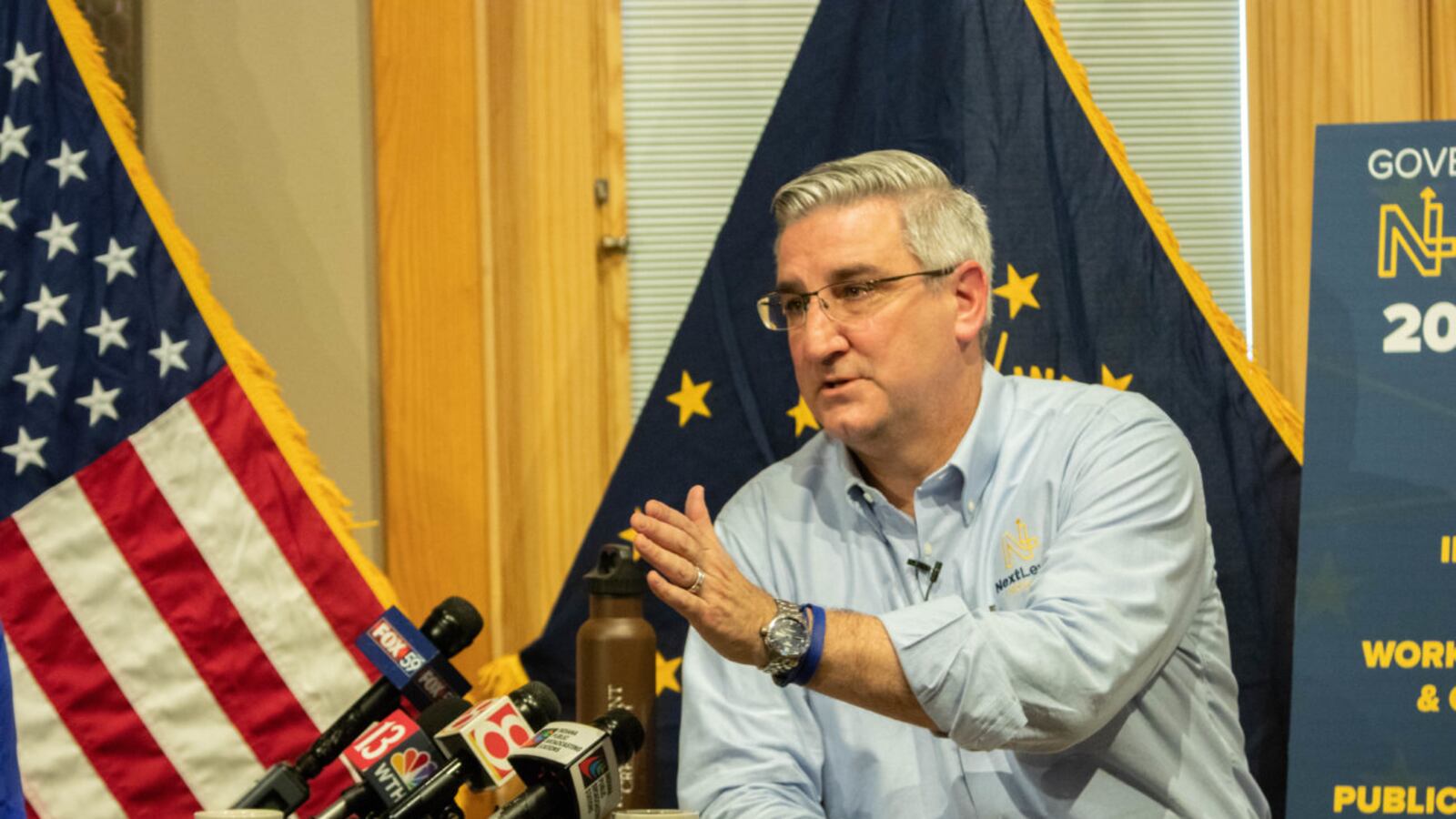Republican Gov. Eric Holcomb said “the stars are aligning” to create stricter rules and meaningful oversight of the state’s low-performing virtual charter schools.
Holcomb said in an interview Tuesday with Chalkbeat that he expects lawmakers to act during next year’s legislative session on an array of proposals to improve virtual charter schools, which were recently approved by the state board of education.
Although he believes there’s a need for virtual schools, Holcomb said they shouldn’t be able to stay open if they fail to meet the state’s performance standards. “It’s not good enough to say ‘we’ve got an option for you’ … There’s a recognition [of that] on my part, and on the state board’s part, and on the legislative leaders’ and members’ parts.”
Following a Chalkbeat investigation last year, Holcomb called for “immediate attention and action” to address the problems with online schools, which struggle to get students to sit for state exams, receive low ratings from the state, and in some cases have raised red flags for having too few teachers.
But lawmakers were initially loathe to answer his call, declining last session to hear a handful of bills that, among other things, would have strengthened regulations for the groups that oversee charter schools, including those that monitor virtual charter schools. At the time, Holcomb said the state board could act within its own powers to make necessary changes.
A state board committee has met several times over the past year to craft regulations that aim to rein in the schools’ growth, ensure they have enough teachers, and make sure parents and students understand the ins and outs of virtual learning before enrolling. The latter policy has received praise from virtual school leaders, lawmakers, and Holcomb.
“It’s incumbent upon us to make sure that a parent understands what they are getting into,” Holcomb said. “You’ve got to have confidence that (virtual education) can work.”
It’s unclear if some of the more dramatic proposals, particularly ones that virtual schools and the companies that back some of them have opposed, will be successful. By far the most sweeping proposal the state board committee came up with was a plan to create a single statewide authorizer to oversee all online charter schools. That part of the plan saw heavy opposition from about half of board members and was ultimately taken out of the recommendations sent to lawmakers.
Some virtual schools have also been unhappy with recommendations that ask lawmakers to amend state law to prohibit school districts from overseeing statewide virtual charter schools, which is the setup for Indiana Virtual School and its sister school, Indiana Virtual Pathways Academy. The schools are overseen by the small rural Daleville public school district.
Other educators say that a proposal to lower funding for students within districts who learn entirely online further limits resources that schools have to support students and hire an appropriate number of teachers.
Overall, Holcomb said he is pleased with the recommendations. As the state board continues its work and plans come into sharper focus, the governor’s staff will stay involved.
“The state board did their job, what they were asked to do, and that is to lay out these guardrails,” Holcomb said. “Here’s the action steps that have to be taken to improve the system. We didn’t have that before.”

